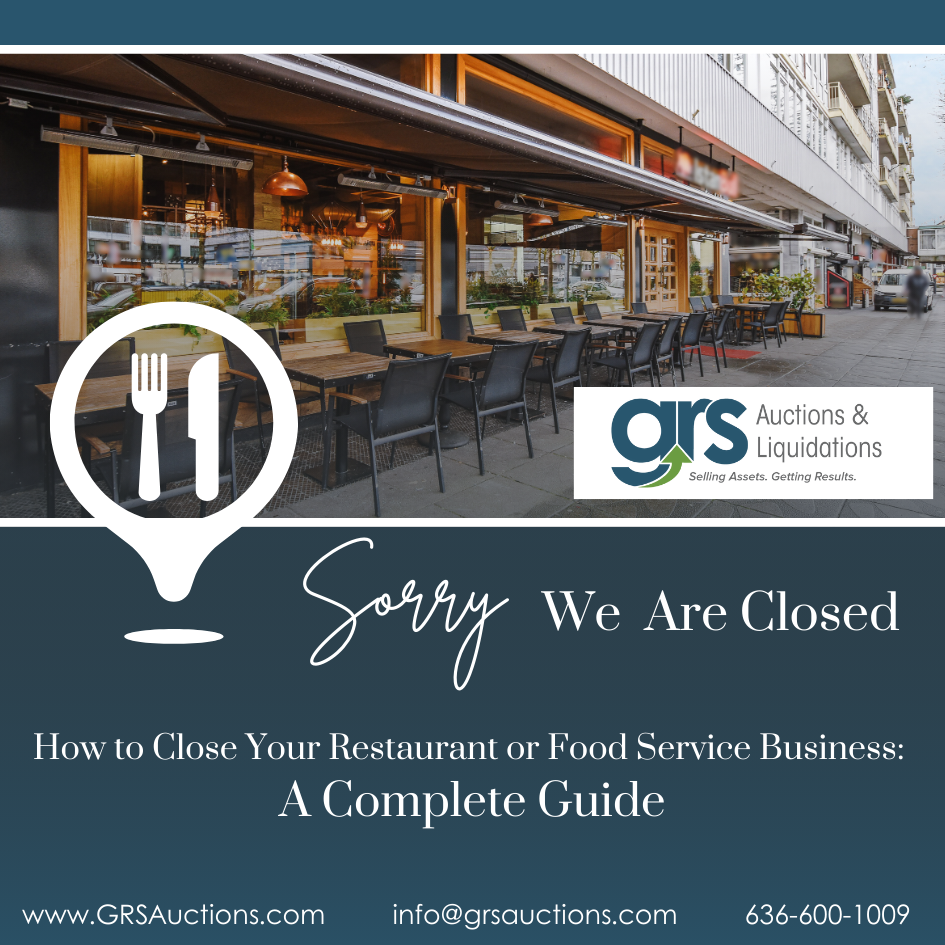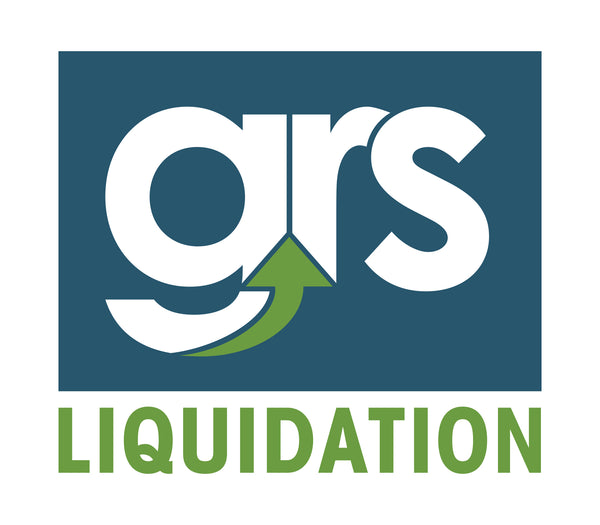
How to Close Your Restaurant or Food Service Business: A Complete Guide
Share
How to Close Your Restaurant or Food Service Business: A Complete Guide
Making the difficult decision to close your restaurant is just the first step in a complex process. Many Owners find that making the final decision to close is the hardest part. Whether you're retiring, facing financial challenges, or dealing with health issues, this comprehensive guide will help you navigate the closure of your food service business efficiently and professionally.
Click here to get free closing check List: Free Check List!
Understanding Your Support Team
Before beginning the closure process, identify key professionals who will guide you through this transition:
- Legal counsel for lease review and contract obligations
- Accountant for financial considerations and tax implications
- Professional auctioneer for equipment sales
- Property manager or landlord for space requirements
- Key Staff
Essential Steps for Closing Your Restaurant
- Set a Firm Closure Date
Establishing a definitive closing date helps structure the entire process. Include your employees in this discussion to maintain transparency and ensure their cooperation during the transition period.
- Review Your Lease Agreement
Work with your attorney to understand:
- Equipment ownership rights
- Building fixtures classification (ventilation hoods, sinks, walk-in coolers)
- Lease termination requirements
- Space condition expectations upon vacancy
- Social Media and Web Site
- Once the date is established, place a note on social media and web site
- If you have sold gift cards, be sure to include the last date they can be used
- Keep your social media up during the auction, you can help market to increase sales
- Try to have your auction on board before announcing so your auction is included in media posts
- Manage Inventory and Supplies
- Cancel pending orders where possible
- Create a food disposal plan
- Dispose of perishable items properly
- Consider donating unopened non-perishables to local food banks or selling at auction
- Coordinate with suppliers for potential returns
- Equipment Liquidation Strategies
Option 1: Professional Auction
Working with an experienced restaurant equipment auctioneer offers several advantages:
- Advanced marketing to qualified buyers
- Professional management of equipment removal
- Online auction platforms for broader reach
- Expert valuation of specialized kitchen equipment
Best Practices for Auction Success:
- Maintain clean, operational equipment
- Keep everything in place and connected until the auction
- Allow the auction team to handle organization and sorting
- Verify with the Auctioneer how utility disconnections will be completed
- Require insurance certificates for equipment removal electrical, plumbing and refrigeration disconnections.
Option 2: Direct Sale to Landlord
Consider negotiating with your property manager to:
- Leave valuable equipment in place
- Reduce removal costs
- Potentially offset remaining lease obligations
- Manage Vendor Relationships
Coordinate the return of leased equipment:
- Coffee brewing systems
- Beverage dispensers
- Ice machines and bins
- Brewery advertising or signage
- Entertainment systems (games, music)
- Space Restoration Requirements
Verify lease obligations regarding:
- Basic cleaning requirements
- Repairs needed
- "White box" restoration if required
- Timeline for complete vacancy
- Legal and Financial Considerations
- Document all transactions
- Maintain clear communication with stakeholders
- Follow local regulations for alcohol sales
- Properly terminate all service contracts
Professional Tips for a Smooth Closure
- Maintain Operations: Keep equipment clean and functional until the end
- Document Everything: Keep a file box with records of lease returns, contracts etc.
- Communicate Clearly: Keep all stakeholders informed of timelines
- Verify Insurance: Ensure coverage remains active through the closure process
- Maximize Value: Consider timing and market conditions for equipment sales
Conclusion
Closing a restaurant requires careful planning and professional execution. By following these steps and working with experienced professionals, you can navigate the closure process efficiently while maximizing the value of your assets.
Looking for a detailed closure checklist? Contact GRS Auctions for their comprehensive restaurant closing checklist.
Written by Nancy Cripe, CAI. Cripe is a licensed Auctioneer in Missouri and Illinois specializing in business, industrial and real estate auctions. She is a member Certified Auctioneers Institute (CAI) of the National Auctioneers Association, Illinois State Auctioneers Association, Missouri Professional Auctioneers Association and Commercial Real Estate Women of St. Louis and a graduate of Focus Leadership St. Louis.
